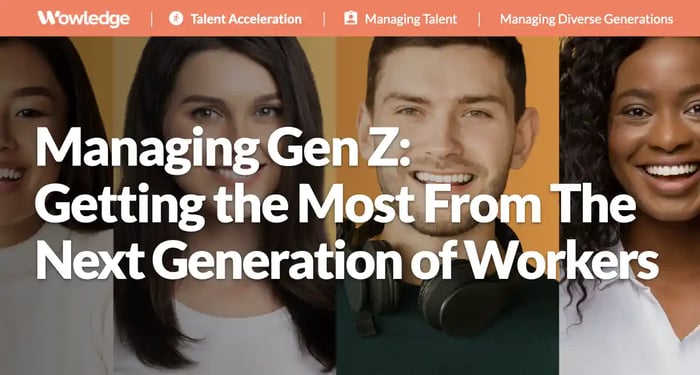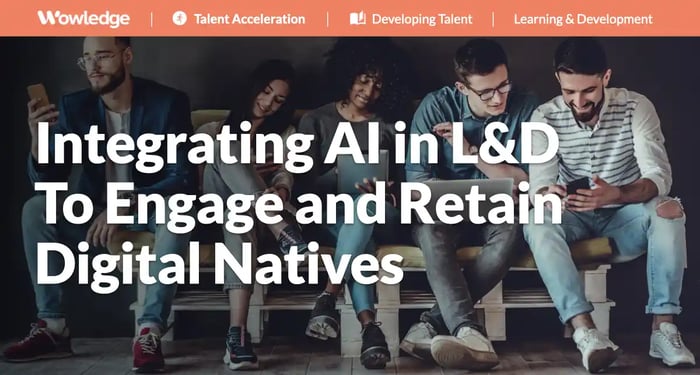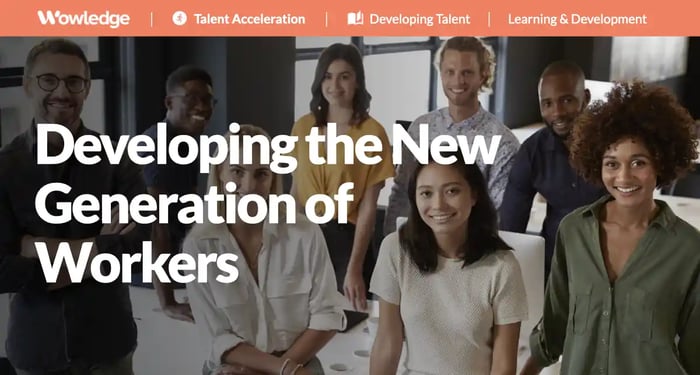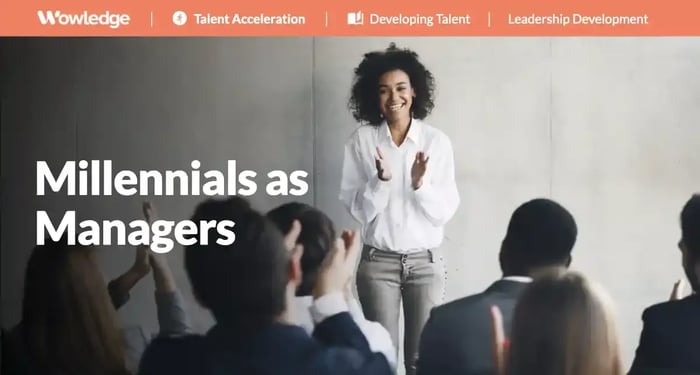Table of Contents
Hiring and managing the newest entrants into the labor force represents a significant challenge for employers. These “Generation Z” workers, born between 1997 and 2012 (ages 13-28), are quickly replacing the retiring Baby Boomers and Gen X and are projected to represent more than 32% of the workforce by 2032, according to the U.S. Bureau of Labor Statistics. Managing Gen Z is turning out to be a large-scale and widespread issue for many organizations around the globe.
Recent articles in the business press have reported that 40% of hiring managers consider them unprepared for work and the workplace. Of those, 94% avoid hiring them. Another found that 37% of managers would expand the use of AI over hiring Gen Z workers.
A growing number of business leaders are sharing previously unheard-of issues and trends with these workers, and the stories are becoming the stuff of legends. As we know, urban legends often lead to wild overstatements and misconceptions that, when repeated enough, become assumed facts and (unfairly) ingrained biases. So what is the reality, and what can employers do to improve managing Gen Z employees?
What employers are reporting
Published studies provide surprising insights, experiences, and views about Gen Z workers from their managers. For example, one survey found that 74% of managers said that Gen Z employees are the most challenging generation. They pointed specifically to shortcomings in skill levels, effort, and motivation. One-third or more also reported that these younger workers were easily offended, distracted, demonstrated low productivity, and communicated ineffectively.
A survey of British workers across different industries, roles, and age groups reported surprising behaviors relative to jobs. It was found that 34% of Gen Z workers accepted a job offer but then failed to report for their first day without notifying the employer. Another 38% of Gen Z workers reported quitting without formally resigning, 44% came into the office to badge in and immediately left to work remotely, and 39% took time off without informing their bosses. Imagine the reaction of their Boomer and X’r managers who “towed the policy line” and adhered to accepted standards of behavior and conduct throughout their corporate careers!
Another study of 1,000 executives and business owners described Gen Z workers as “entitled, standoffish, demanding, and insufficiently skilled” to meet their employers’ requirements. Furthermore, 75% said that most of their college hires were “unsatisfactory," with 50% feeling that the new hires lacked motivation and failed to take the initiative. Others complained that the Gen Z hires failed to meet expectations for professionalism, communications skills, professional attire, and “etiquette.”
These complaints paint a bleak picture for a large swath of the available workforce, which is especially concerning considering employers facing worldwide labor shortages. Given the extent to which they represent a rapidly increasing portion of the available workforce, organizations cannot simply avoid hiring them. What is needed is a better understanding of this generation of workers and the adoption of practices for more effectively managing Gen Z.
External issues that help explain Gen Z’s unique challenges
Before identifying strategies for managing Gen Z workers, it is essential to understand the unique mix of reasons for their seemingly unique perspectives and behaviors on working, their employers, and the workplace. Many of the issues evolved from the world they were born and raised in, and some psychological factors influenced the development of their worldviews.
Being raised with the pressure to succeed
Unlike Baby Boomers (“raised to roam” freely in their neighborhoods) and Gen X (“latchkey kids” who came home after school to an empty house), many Millennial and Gen Z children were raised by what was described as “helicopter parenting” by two working parents. Compared to previous generations, their free time was planned with structured activities with after-school programs, camps, sports, and music lessons to develop them to their full potential. That pressure to perform and succeed started early with expectations for preparing them to get into the best schools, career fields, and jobs through excellent grades, extracurriculars, and summer experiences and employment. These influence Gen Z’s high expectations and plans for future success in the workplace.
Some psychologists attribute Gen Z’s perspectives to overindulgent parenting, which focuses on overly protective behaviors. These communicate a lack of environmental trust and fear and limit children's ability to absorb and learn from disappointment and failures. Those are the experiences that, while at times painful, build their resilience and (eventually) self-esteem as they learn to overcome them.
Social and environmental changes
Some significant trends and occurrences happened to this generation as they were (are) coming of age. The pandemic created significant concerns that exposed them to global lifestyle changes related to public health and safety, where even going out in public represented a substantial risk to their well-being. The associated impacts on job and financial security, supply chains (e.g., shortages of food and personal products), and even early access to medical solutions (vaccinations) created a sense of helplessness and mistrust in their previously automatic world.
The rise of political conservatism and the preponderance of misinformation in their most valued sources of insight (social and traditional media) conflicts with Gen Z’s passion for social equity and environmental sustainability. Being focused on collaborative contributions and the common good, their world was quickly moving away from their more positive views about the value of social diversity that brings interesting perspectives and solutions to many of society’s challenges.
Remote education during the pandemic
Having their school lives disrupted by stay-at-home mandates substantially and negatively impacted student skill development, which has yet to be recovered. As the Federal Reserve Bank of Richmond reported, the mix of virtual and hybrid learning led to a loss of 6 months' worth of expected educational gains in math, with more minor but similar losses in English language skills. These findings were consistent across the globe and grade levels. The impact was also seen in developing social and collaborative skills where students “attended” classes online with limited direct teacher oversight and continual, face-to-face peer interactions. This, in particular, has been blamed for some shortcomings observed in recent Gen Z hires.
Coming of age during financial market instability
Coming into adulthood during times of high inflation, financial market instabilities, increasing consumer prices, cost of housing (rental and purchase), and the ever-escalating costs of education have taken a toll on Gen Z’s faith and perspective in their ability to earn a good living. Similar to what Baby Boomers experienced in the 1970s-1980s with high inflation and borrowing rates, personal financial concerns have stressed this generation of workers. Keep in mind that Gen Zs were raised in the shadows of the Dot-com bust, the global financial crisis of 2008, the pandemic-related employment and economic issues, and the recent inflationary increases.
There seems to be a sense of doom and gloom, as only 32% of them feel that the overall economic situation will recover, and only 48% feel their personal financial situation will improve. They are spending more on essentials (housing, food, car insurance) than previous generations and are paying 31% more for housing than their counterparts only 10 years earlier.

What makes managing Gen Z workers different
Because of the influences previously described, Gen Z workers have unique characteristics and behavioral styles that employers should know. Some of these may be a source of annoyance to managers and leaders from prior generations. However, remember that each successive generation brings strengths and differences that, when harnessed, can lead to more significant innovation and success. Such is the role of the leader.
1. Lack of trust
Managing Gen Z workers is complicated by what Gallup has found to be the greatest decline of any generation in 1) feeling cared about at work, 2) having the chance to learn and grow, 3) having progress discussions with their supervisors, and 4) feeling that their opinions matter. They experienced the highest drop in engagement levels over the past four years (from 40% to 32%), with other research finding that only 40% report being “very trusting.” With managers spending less time coaching and developing their direct reports, the impact is acutely felt among this part of the working population.
2. Limited social and communication skills
Gartner research has found this to be a common issue when managing Gen Z workers and suggests that remote or hybrid work arrangements are partially to blame. Add this to a substantially higher reliance on digital communications (texting, social apps), and these workers’ lack of face-to-face time with bosses, mentors, and peers has shown up in under-developed collaboration skills, cultural assimilation, and presentation or interpersonal communication skills.
3. Experience stress and mental health issues
For many of the environmental factors listed before, plus reported fears (and a daily barrage of news) related to climate change, gun violence, global disasters, and political and related conflicts), anxiety levels are higher for Gen Z workers. The American Psychological Association (APA) confirmed higher stress levels for workers 18-34, and McKinsey reports that 55% of them had been diagnosed or treated for mental illness. Deloitte reported similar findings, with 40% of Gen Z workers feeling stressed “all or most” of the time.
4. View work solely as a means to an end
Work-life balance is a priority for Gen Zs, with 74% stating they would change jobs to improve their work-life balance. It goes further, with only 36% believing their work is central to their identity. Interestingly, cultural activities (reading, music, live performances) are equally important to them compared to their work and identity.
5. Are pragmatic and challenge what they have been told
Complaints about managing Gen Z workers include their propensity to push back and question what they are told. They are so used to being able to confirm or validate what has been shared with them (via Google, etc.), coupled with a desire to understand not only how but why something is done in a certain way, that they regularly ask questions to validate those. It is a way they express and act on self-reliance that can drive their development and ability to bring innovation to the workplace. They also tend to seek alternative solutions and challenge outdated processes, expecting workplaces to evolve alongside technological advancements and societal changes.
6. Prefer direct, transparent, but compassionate communications
Managing Gen Z workers requires a balance of openness and honesty, active listening, and tactful feedback. While they want transparency, they are sensitive to criticism, which calls for balancing corrective with reinforcing feedback (e.g., “sandwich technique: good news-bad news-good news). They prefer directness and brevity and respond best when asked to share their perspective and input to create an interactive discussion. They put a high value on immediate feedback, such as that provided in frequent performance coaching and check-in meetings.
7. Value collaboration and teamwork
Research from Stanford University has found that they are used to and enjoy connecting and working with peers (within and across functional lines) to expose themselves to interesting perspectives and experiences. They want to be included in defining and clarifying issues and creating solutions that move the organization forward. Interestingly, their definition of “diversity,” which they report as critically important to them at work, is about a mix of experiences, identities, ideas, and opinions beyond any race, gender, and ethnic boundaries. Gen Z is also less hierarchical than previous generations, and they believe and trust in leaders who lead and are guided by consensus.
Understanding the realities of managing Gen Z workers
The problem that companies face with managing Gen Z workers involves building their core working capabilities while adapting to their strengths and preferences in ways that continue to drive the organizational mission and objectives. Updating corporate values and processes is nothing new—those are often updated in service of continuous evolution to meet the needs of the organization and those who generate its value to stakeholders—the employees.
The reality is that Gen Z workers appear to lack skills related to workplace cultural dynamics, etiquette, communications, and collaboration. This is often the case for newly minted workers, but given their size as a group, the Gen Z workforce will require more diligence and disciplined approaches.
Despite managers' concerns that they are unaware of their challenges, Gen Z workers agree that a problem exists. For example, 85% of recently hired college graduates report that their soft skills (influencing, persuading, collaborating) need attention. However, 40% say they have received no support for developing those skills from their direct manager. Another survey found that 85% of college graduates wished their schools had better prepared them for the workplace. Only 24% of those recent graduates reported having all the skills they needed for their jobs after graduation.

Potential solutions for managing Gen Z new hires
As stated earlier, despite what might be a preference for avoiding hiring or using AI in place of Gen Z workers, the fact is that existing labor shortages will not solve themselves (as long-standing birth rates drive them). The key is to understand the dilemma of managing Gen Z workers mainly affected by environmental factors that are out of their control and then establish practices and approaches that enable the organization to leverage their capabilities best.
1. Do not assume that every Gen Z worker is or will be problematic
Biases arise from managers' complaints and publicly available reports that support those perceptions and experiences. As with any quality HR practice, understanding each individual, their strengths and development needs, work style, adaptability, and willingness to grow and develop is crucial to high performance, productivity, engagement, and contributions to organizational objectives.
2. Create more robust onboarding and development programs
New hires should be brought in with solid and impactful onboarding programs that effectively indoctrinate, socially acclimate, and guide how they can live and work according to corporate values, cultural norms, and performance and collaboration expectations. Consider developing a longer onboarding cycle that takes them from job acceptance to the first anniversary, with signature moments, events, and experiences at significant points in time that bond them to the organization. Performance, productivity, competency, and values-based assessments can be made and discussed throughout the first year until a new hire has exhibited the proper and expected range of capabilities and alignment with job performance and cultural expectations. Rotational and experiential programs for college hires can also be used to assimilate and enculturate new hires, especially into mission-critical roles.
If large groups of recent graduates or workforce entries are hired and share common shortcomings, build special programming to address those. Examples include group coaching and mentoring and formal new graduate training, where leaders and younger employees can present introductions to the business, corporate values, customer expectations, career opportunities, and expectations for behavior and dress.
3. Provide individually tailored development planning and action
It is critical to provide a structured approach to skill development based on shortcomings identified in the hiring process and the initial year(s) in a new role. Gen Z workers strongly prefer continuous learning and skill development and prioritize advancement as proof of their growing capabilities. They grew up with and are increasingly exposed to consumer technologies that provide personalized information and guidance. An individual development plan (IDP) developed with their manager or a career development expert is necessary when managing Gen Z careers. These should be accompanied by measuring their completion of each development goal to keep them on target and meeting the organization's needs.
4. Consider employee benefits options that better meet their needs
Consider offering benefit options under a personalized choice (or “cafeteria plan”) structure that can address many of Gen Z’s financially based anxieties. Use employee listening methods to understand the main concerns they have that an employee benefits and perquisites (perks) program might address. For example, in place of free lunches, gym memberships, or sign-on bonuses, offer options for financial well-being education, stress management resources, and debt-reduction bonuses.
5. Prepare hiring managers
Due to their often overwhelming job responsibilities and stress levels, middle managers are critical drivers of success for Gen Z workers. Reporting on behaviors (untimely and ineffective feedback, one-way performance discussions) that are unproductive and thus fail to motivate or develop Gen Z workers is evidence that managers need support and resources to manage these workers better.
Two key elements of the equation are to help managers a) understand those employees are somewhat frail and appreciate timely feedback that is collaborative, empathetic and balanced, and b) perform best when receiving continuous coaching and guidance in how to better perform their tasks when assigned and during delivery.
6. Seek out and hire Gen Z’s with work experience
The reality is that new workforce entrants, whether hired off of campus, a trade school, or high school, tend to lack an understanding of how to show up for and operate within a structured workplace and culture. Consider hiring appropriately skilled people with some work experience, such as through internships, Co-op programs, professionally-focused summer jobs, apprenticeships, or even part-time jobs with a reasonable level of responsibility, such as assistant manager or sales role. Individuals with this type of experience have learned some basic tenets of employment. They can provide professional references who can relate their level of competence at essential workplace conduct, meeting and exceeding performance goals, and demonstrated learning and skill levels.
Relevant Practices & Tools
Advanced Career Development Practices that Create a Culture of Mobility and Expand Employee Career Horizons with Technology. >
Advanced Career Development creates and manages a culture of career mobility by building a structured foundation for comparing jobs with overlapping capability requirements... more »
Incorporating Coaching and Mentoring into Performance Management to Better Engage Employees in their Own Performance. >
Enhancing managerial feedback and coaching is a process informed and driven in part by training and development, in part through feedback, and in part by reinforcement or rewards tied to... more »
Engaging Employees to Co-create Wellness Solutions that Increase Engagement and Promote Enduring Practices. >
Traditionally, the decision of what wellness programs to offer employees comes from behind the closed doors of the HR function, often sitting with a benefits manager... more »
Developing Leaders Across Multiple Levels of Management. >
Advanced leadership development is designed to not only develop current executives, but "leaders" in all levels of the organization... more »
The Individual Development Plan (IDP) Tool: Capture Targeted Employee Learning and Development Actions for a Performance Period. >
A plan of action to guide the employee throughout the coming performance period (e.g., year) as they continue to develop necessary knowledge, skills, abilities, and competencies... more »
About Wowledge
Wowledge is the expert-driven platform for lean teams building strategic HR programs. Members enjoy access to up-to-date best practices, step-by-step guides, tools, templates, and insights to accelerate the design and implementation of all key HR programs and processes.
Since each organization has unique characteristics, needs, and aspirations, Wowledge's practices are developed utilizing an exclusive stage-based approach—from Core to Advanced to Emerging—that reflects distinct levels of sophistication to meet our members where they are.
Build strategic HR programs with refreshingly easy-to-follow best practices.
Get started for FREE! Learn more.










